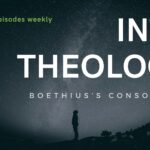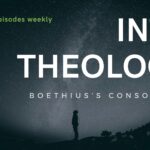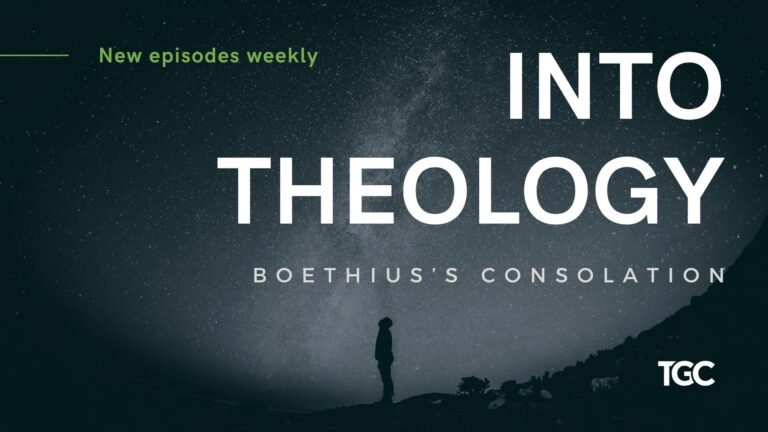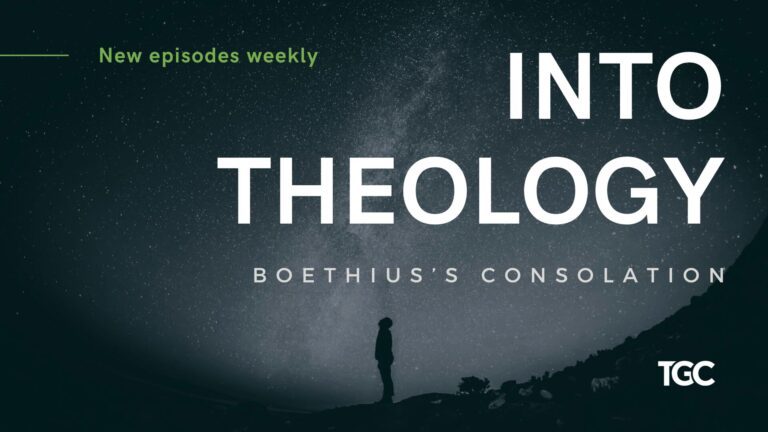Psalm 91:10 says, “no evil shall be allowed to befall you, no plague come near your tent.” Does this verse mean that God promises to protect us from plagues? More specifically, does Psalm 91 promise to protect us from present-day pandemics?
No, it does not. Psalm 91 ties its promises directly to the curses and blessings of the Mosaic covenant. Psalm 91 still applies to us, but it does so under the terms of the New Covenant. And those promises are better and more glorious than the promises of the Old Covenant. Let me explain.
First, Psalm 91 encourages Israel to return to God and so end the curse of the covenant
The canonical context of Psalm 91 shows that the psalm draws on God’s covenantal relationship with Israel along with the specific curses and blessings of that covenant (e.g., Deut 27–28).
Book III of the Psalter ends in Psalm 89. Ethan the Ezrahite wrote Psalm 89, and it highlights the dismal failure of the Monarchy (Ps 89:38). Psalm 90 begins book IV of the Psalter, and title attributes Moses as the author of the psalm.
In fact, many psalms in Book IV highlight Moses (Pss 90–106). Psalm 106 ends this portion of the Psalter by trusting in God to return the people from exile (Ps 106:47).
So Book IV of the Psalter highlights Moses and the covenant with Israel possibly because Book IV of the Psalter aims to encourage Jewish persons in exile to return to the promises of God, the covenant of God.
In particular, the covenantal promises of God entail the physical flourishing of the nation of Israel and the land of dwelling place. For example, if Israel breaks the covenant of God, “The Lord will make the pestilence stick to you until he has consumed you off the land that you are entering to take possession of it” (Deut 28:21). Yet if they obey God, then God’s covenantal promise is to bless them (Deut 28:1–14).
Hence, when Psalm 91 claims that abiding in God leads to rescue from “the deadly pestilence” (Ps 91:3), this signals a reversal of the curse of the covenant. A key and final curse of the covenant was exile.
Second, Psalm 91 offers hope to those in exile
So for exilic readers of Psalm 91, these promises would lead to renewed hope that the curse of the covenant would soon end. The promise that God would make Israel his refuge under his wings and spread his pinions over them reminds us of how God rescued Israel in the wilderness like an eagle “spreading out its wings, catching them, bearing them on its pinions” (Deut 32:11 with Ps 91:4).
The repeated refrain that God is Israel’s refuge (Ps 91:2, 4, 9) reminds of God’s affirmation that he is “the rock in which they took refuge” (Deut 32:37). The thousands falling before Israel in Psalm 91:7 allude to Deuteronomy 32:30, “How could one have chased a thousand, and two have put ten thousand to flight, unless their Rock had sold them, and the Lord had given them up.”
I am sure one could read almost every line of this psalm and see how it alludes to Deuteronomy. Israel suffered the curse of exile, but Deuteronomy promises rescue from exile and reversal of the curse through that rescue.
That is the context of Psalm 91. It does not refer to God’s unconditional promise from any and all harm. Pointedly, God sent a plague to Israel in the past for disobedience (e.g., Num 31:16).
The promises of rescue from plagues among other things point to God fulfilling his covenant with Israel because they fulfilled their side of the bargain: namely, they took refuge in God and listened to his voice.
Third, Satan tempted Jesus with this psalm, and Jesus said “no”
As others have noted, Satan uses Psalm 91 to tempt Jesus while he was in the wilderness (Ps 91:11–12 with Luke 4:10–11). Yet Jesus rebuffed Satan’s ploy to apply to the promises of Psalm 91. Instead, he resisted temptation by not calling out to angelic protectors.
In fact, Jesus came to live in our weakness as a representative of all humanity. Luke makes this point, in part, by tracing Jesus’s genealogy to Adam (Luke 3:38). And in the very next verse, Jesus goes into the wilderness to confront Satan. There, he defeats the devil by accepting regular, human limitations.
We should follow Jesus here. He accepted human frailty, and we live in him. He came to fulfill not just the Mosaic covenant but every good promise of God (2 Cor 1:20). He became like us in every way (but without sin) in order to heal us every way.
Jesus sent the Spirit to indwell us and renew us day by day. And the fullness of Christ’s salvation happens at the resurrection when our mortal and corruptible bodies become immortal and incorrupt (1 Cor 15:53).
So we live today with human frailty under the Spirit’s guidance as we follow Christ who lived in frailty before dying and rising from the dead. We too live in frailty until we die and rise unto glory as he did.
Does Psalm 91 Apply to Us Then? Yes!
As the harbinger of a new and better covenant, Jesus no longer proclaims the covenantal curses and blessings of Sinai (Deut 27–28). Rather, he inaugurates the new covenant in his own body. He is both the recipient (as a human being) and the covenant maker (as the divine being).
By accepting all that humans have and are, whether that be weakness to disease or physical tiredness, he healed all that we are. He lived for our sake, on our behalf. Then he died, rose from the dead, and thereby conquered death.
We follow Christ as we pass through this life into the next. He promises to always be with us (Matt 28:20). Under the new covenant, Christ is always with us. He comforts us. He helps us in our need. And the Spirit daily grows us until the time of our perfection when our bodies will no longer be frail and weak (See 1 Cor 15).
Every promise has its yes and Amen in Christ Jesus (2 Cor 1:20). And Christ’s Yes is true of Psalm 91.
God does not promise to protect us from every plague nor every pandemic during our sojourn in the flesh. But he does promise to be with us unto the end of the age, to do us good and not harm, and despite all circumstances to leave us with an unshakeable hope. And he does promise that one day we will no longer deal with disease, plagues, and pestilence.
He has promised us glory and immortality. It is no longer death to die. Instead, death means entering into glorious immortality (e.g., 2 Thess 2:14; 1 Cor 15:53). And that is better than any promise in the old covenant.











